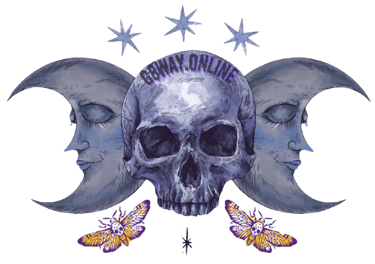• Blowing out birthday candles while making a wish? – Spellcasting.
• Tossing coins in fountains? – Offering to water spirits.
• Crossing your fingers? – Folk protection charm.
• Wearing crystals or burning incense? – Straight up witch behavior.
So when folks sneer at “witches” or laugh off magick as woo-woo nonsense, just know this: They’re already doing it.🖤
Once upon a time, what we now praise as holistic health, natural remedies, and alternative medicine would’ve had you branded as a witch, especially if you were a woman, midwife, healer, or just happened to know your way around a garden of mugwort, yarrow, and willow bark.
Back then, successful healing wasn’t always seen as a blessing—it was suspicious. People feared what they didn’t understand, and any woman (or man) with knowledge of plant medicine could be accused of consorting with dark forces. If your tea cured a fever, if your salve soothed a rash, if your tincture worked better than the town priest’s prayer—guess what? You were a threat to the patriarchal and religious order.
Herbalism was demonized, not because it didn’t work, but because it did.
So yes, if you now benefit from an herbal practice—whether it’s drinking nettle tea for your energy, burning sage for cleansing, or using lavender oil to calm anxiety—you would’ve been accused of witchcraft in another era. The same dried herbs now sold in Whole Foods were once enough to have someone tortured or burned at the stake.
This shift in perspective shows how powerful and threatening real knowledge—especially earth-based, ancestral knowledge—has always been to institutions of control.
Modern herbalists are, in many ways, the descendants of witches who survived—or whose legacies refused to be forgotten. 🌿🖤
Unusual or non-conformist behavior? Straight-up demonic in the eyes of the old world. Back in the day, all it took to be labeled a witch—or some spawn of Satan—was to be loud, difficult, or different. Talk back? You're possessed. Refuse to marry? Must be a hag. Question authority? Clearly, you're hexing the village.
And it didn’t stop at herbs or healing. If you were argumentative, too outspoken, too educated, or God forbid, angry at injustice—they'd say you were in league with the Devil himself. Society had a simple formula: Conform or burn. Today, those same behaviors are recognized as leadership.


So much of what we do now—without question—is rooted in ancient spirituality, mysticism, and yup, witchcraft. . But it’s been sanitized, commercialized, and sold back to us with a Jesus fish slapped on it. Even basic things like:
